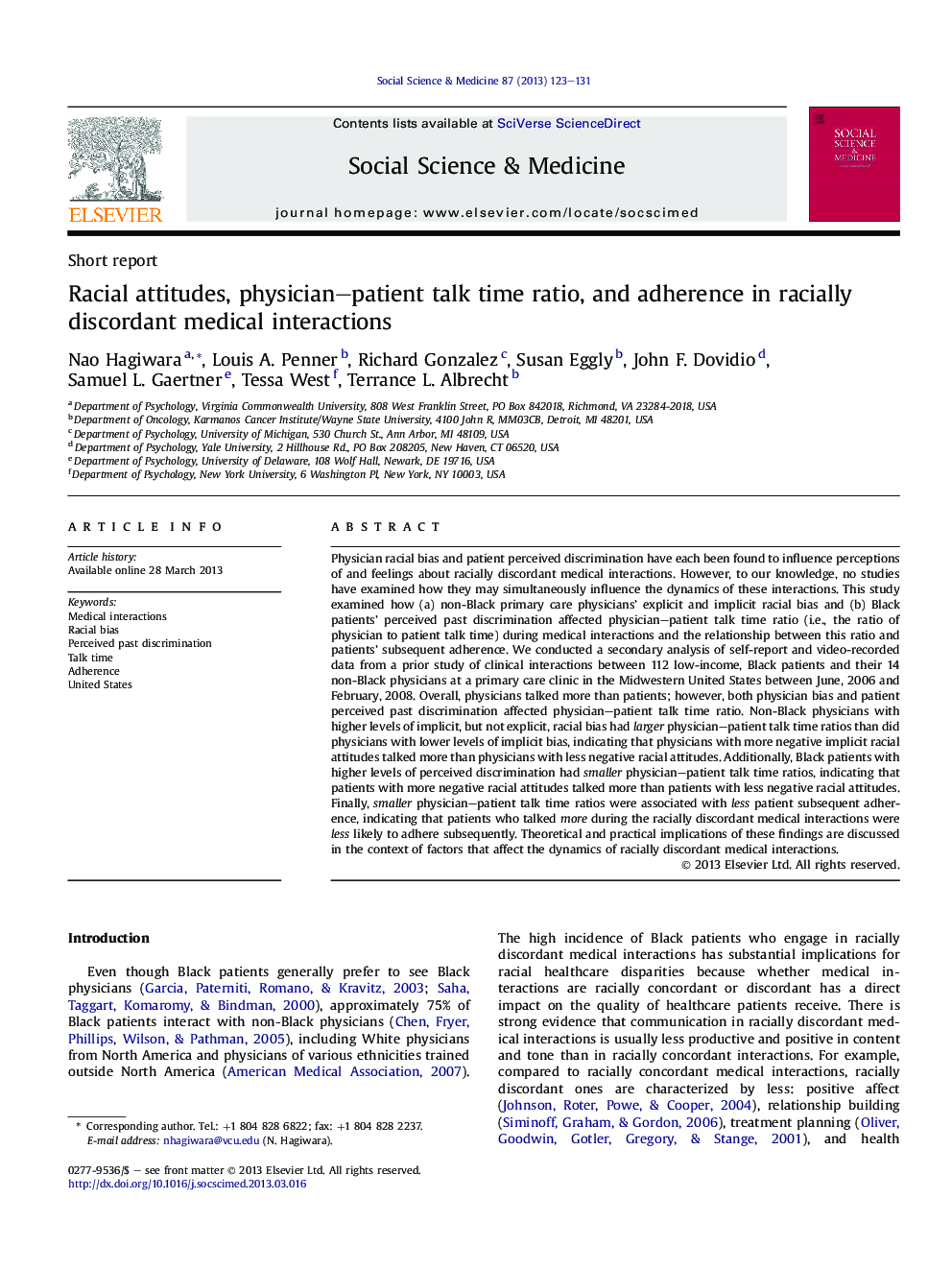| کد مقاله | کد نشریه | سال انتشار | مقاله انگلیسی | نسخه تمام متن |
|---|---|---|---|---|
| 7337583 | 1476081 | 2013 | 9 صفحه PDF | دانلود رایگان |
عنوان انگلیسی مقاله ISI
Racial attitudes, physician-patient talk time ratio, and adherence in racially discordant medical interactions
ترجمه فارسی عنوان
نگرش های نژادی، نسبت زمان مکالمه پزشک و بیمار و پیوستگی در تعاملات پزشکی نژادپرستانه
دانلود مقاله + سفارش ترجمه
دانلود مقاله ISI انگلیسی
رایگان برای ایرانیان
کلمات کلیدی
تعاملات پزشکی، تعصب نژادی، تبعیض گذشته درک شده، وقت مکالمه، تبعیت، ایالات متحده،
موضوعات مرتبط
علوم پزشکی و سلامت
پزشکی و دندانپزشکی
سیاست های بهداشت و سلامت عمومی
چکیده انگلیسی
Physician racial bias and patient perceived discrimination have each been found to influence perceptions of and feelings about racially discordant medical interactions. However, to our knowledge, no studies have examined how they may simultaneously influence the dynamics of these interactions. This study examined how (a) non-Black primary care physicians' explicit and implicit racial bias and (b) Black patients' perceived past discrimination affected physician-patient talk time ratio (i.e., the ratio of physician to patient talk time) during medical interactions and the relationship between this ratio and patients' subsequent adherence. We conducted a secondary analysis of self-report and video-recorded data from a prior study of clinical interactions between 112 low-income, Black patients and their 14 non-Black physicians at a primary care clinic in the Midwestern United States between June, 2006 and February, 2008. Overall, physicians talked more than patients; however, both physician bias and patient perceived past discrimination affected physician-patient talk time ratio. Non-Black physicians with higher levels of implicit, but not explicit, racial bias had larger physician-patient talk time ratios than did physicians with lower levels of implicit bias, indicating that physicians with more negative implicit racial attitudes talked more than physicians with less negative racial attitudes. Additionally, Black patients with higher levels of perceived discrimination had smaller physician-patient talk time ratios, indicating that patients with more negative racial attitudes talked more than patients with less negative racial attitudes. Finally, smaller physician-patient talk time ratios were associated with less patient subsequent adherence, indicating that patients who talked more during the racially discordant medical interactions were less likely to adhere subsequently. Theoretical and practical implications of these findings are discussed in the context of factors that affect the dynamics of racially discordant medical interactions.
ناشر
Database: Elsevier - ScienceDirect (ساینس دایرکت)
Journal: Social Science & Medicine - Volume 87, June 2013, Pages 123-131
Journal: Social Science & Medicine - Volume 87, June 2013, Pages 123-131
نویسندگان
Nao Hagiwara, Louis A. Penner, Richard Gonzalez, Susan Eggly, John F. Dovidio, Samuel L. Gaertner, Tessa West, Terrance L. Albrecht,
